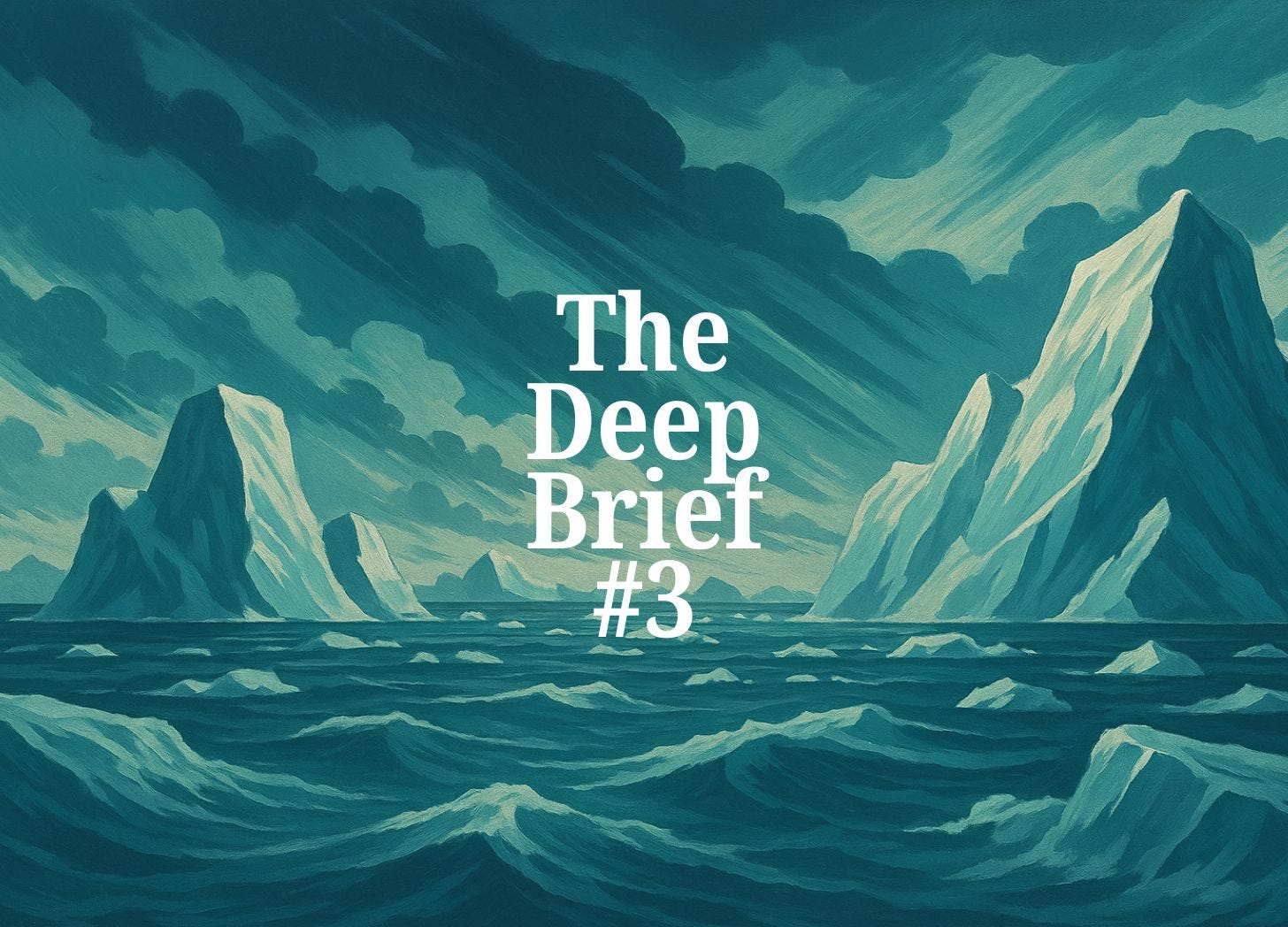The Deep Brief #3 - 13.6.25
Things you should know about the ocean this week
What is The Deep Brief?
Each Friday, I scan global headlines, frontline campaigns, and scientific papers to bring you the most urgent, overlooked, or powerful stories shaping our relationship with the sea. This is your end-of-week ocean intelligence, built to inform, agitate and equip you.
Three deep dives. Three quick hits. One hard truth from the sea.
Here’s what you need to know this week, from collapsing currents to rising rights.
1. Collapse of a Major Ocean Current Could Cool Europe, While the Planet Heats
A new study warns that a collapse of the Atlantic Meridional Overturning Circulation (AMOC), the ocean current system that helps stabilise the climate, would cause Northern Europe to cool sharply even as the planet continues warming.
The breakdown of this system could result in rapid climate shifts, food shortages, monsoon failures, and rising sea levels along some coastlines. The study finds that previous models may have underestimated how extreme the localised impacts could be.
Why it matters: AMOC collapse is one of the most feared climate tipping points. It’s not just about temperature, it’s about the ocean losing its ability to regulate the planet.
Read more: Carbon Brief – June 11
2. The UK Finally Moves on Bottom Trawling
After years of pressure from NGOs, scientists, and citizen campaigns, the UK government has launched a 12-week consultation to ban bottom trawling in marine protected areas (MPAs).
Yes, you read that right. Up until now, the UK has allowed industrial seabed destruction inside areas it claims are protected.
Why it matters: Bottom trawling is one of the most ecologically damaging fishing methods, it flattens seabeds, kills bycatch and stirs up carbon stores. A real ban would be a huge win for marine life.
Read more: BBC – June 9
3. A Royal Call to Recognise Whale Rights
Princess Frederica Tuita Fili of Tonga has called for whales to be granted legal rights, not as commodities or wildlife, but as sovereign beings with intrinsic value.
In a powerful speech, she said whales are “the climate warriors we never asked for”, and proposed legal personhood as a mechanism to protect them under international law.
Why it matters: The call comes from a region where whales are sacred, not symbolic. It directly challenges the extractive worldview behind commercial whaling, fossil fuel expansion, and industrial fisheries.
It’s the kind of leadership missing from global ocean governance and it’s coming from the Pacific.
Read more: RNZ Pacific – June 10
In Brief
Nuclear waste barrels discovered on the Atlantic seabed
France 24 – June 7Sinking plastics now threaten deep-sea ecosystems, not just surface life
EarthDay.org – June 10UN forum highlights $175 billion finance gap for achieving SDG14
SDG Knowledge Hub – June 7
Below the Surface
Each week, I end with one story that’s too urgent to ignore, even if the world barely noticed.
The ocean is becoming so acidic that entire ecosystems are beginning to destabilise. Scientists warn that acidification is now affecting species’ ability to reproduce, grow shells and survive early life stages, especially plankton, corals and shellfish.
This isn’t a distant warning. It’s happening now and faster than models predicted.
Source: The Guardian – June 9
That’s all for this week.
Thank you for all your support and for helping Voice for the Blue grow each and every day. Even though the sea is under pressure, it is incredibly motivating to know that so many of us are fighting for it.
See you Monday for an exposé on Dr Øen, the man who designed and profits from every explosive harpoon fired at a whale. He still advises governments today.
Have a great weekend.
— Luke
If you want to help this newsletter grow, feel free to share it with someone who cares about the ocean too. You can also subscribe to Voice for the Blue to get The Deep Brief direct to your inbox each week, no noise, just the stuff that matters.
📌 PS: Likes and Restacks go a long way. This is a community, not a campaign.



